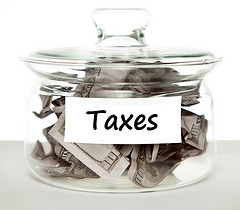 |
As of this writing there are about 7 states that have left issuing paper income tax refund checks in favor of plastic debit card. Those states include Georgia, South Carolina, Oklahoma, Virginia, Connecticut, Louisiana, and New York (New York still offers the choice of paper or plastic).
The main reasoning behind this new refund system has been to eliminate the costs associated with issuing paper checks, with the cost of printing and issuing cards now passed to the credit and debit card companies.
But the costs saved by the state may end up costing those issued the debit cards. Here’s how:
Most cards will allow a one-time withdrawal of cash free of charge. Those that want their entire refund in cash simply need to go to a participating bank (one that works with one of the major card companies) and request the withdrawal. After the one-time freebie, then fees can be from $2 to $10 per withdrawal.
There’s also a fee should you not use your card for a while. Go 6 months without using it and it could cost you $3 per month. Need a replacement card? That’ll be $10-$15 please.
Admittedly, these cards can be convenient for those that intend on spending the money, but should you want to save or resist the temptation, you can always make the free, one-time withdrawal, or simply set up a checking or savings account at your local bank and have your refund direct deposited. Another option is to consider having your refund issued in US Savings Bonds.
In my opinion, the issuing of cards could end up hurting the people who don’t have savings or checking accounts and are the ones that need them the most, and would be most adversely affected by the fees involved with the debit cards.